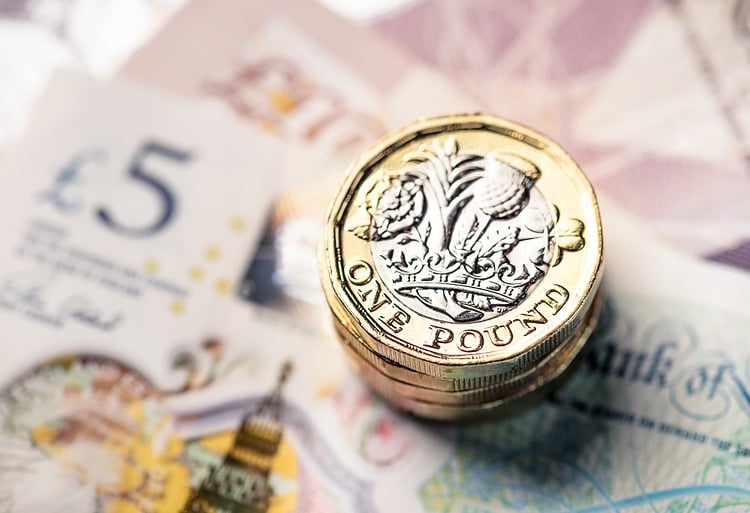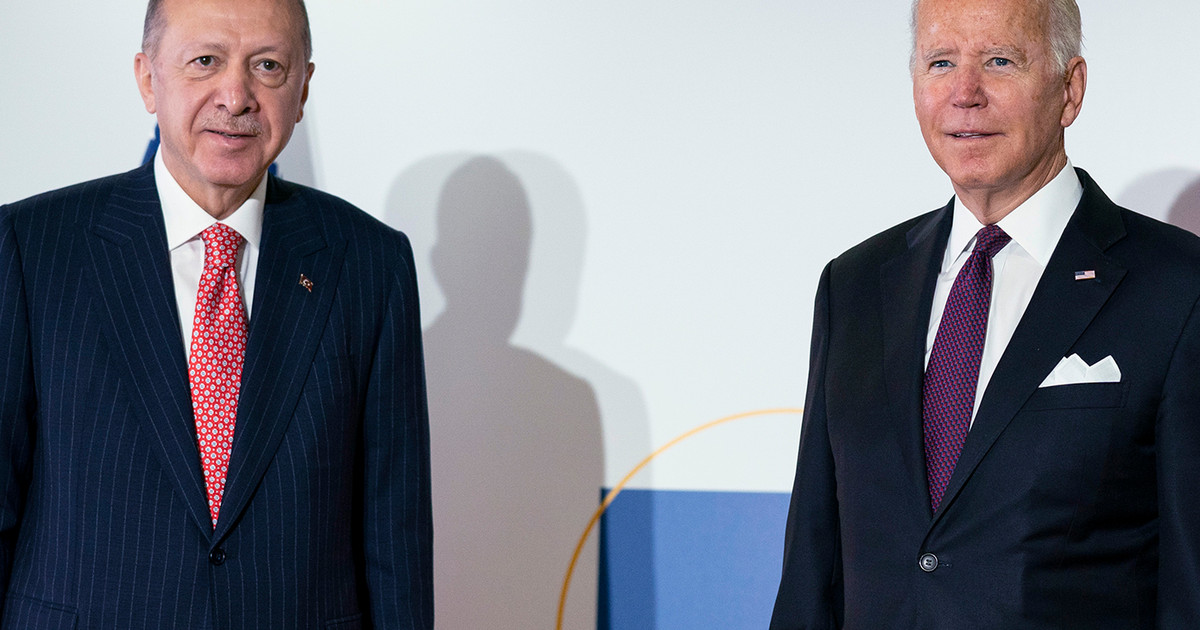This article is published in number 42 of Vanity Fair on newsstands until October 19, 2021
“Facebook doesn’t deserve our trust”, says the great accuser of Mark Zuckerberg’s empire. Frances Haugen (in the picture), 37, is a computer engineer who studied at Harvard and worked nearly two years as a product manager on the anti-disinformation team of the giant Menlo Park. She is a dissident and – for Zuckerberg’s society – a traitor. She resigned in May: covered by the pseudonym “Sean”, she switched to Wall Street Journal the information behind the Facebook Files investigation on encouraging hate speech and how the Instagram algorithm takes advantage of teenagers and children.
Now Frances Haugen has decided to come out. And last week, in a hearing resumed around the world, he took up his battle before the United States Congress. She is convinced that the Facebook algorithm is dangerous for our society and that, since no one inside the company cares about it, the only solution is to seek help from the outside.
It is certainly not the first time that Facebook has come under indictment, but this time it is different: it is not a question of understanding whether, how and how dangerous and “incendiary” the functioning of the platform is, but of an admission of guilt by the same Facebook on point. Former employee and whistleblower Haugen says he has evidence that the company has known about the problems for some time because, for example, he knows the algorithm is capable of recognizing adolescents’ insecurities and eating disorders, but instead of running for cover. protect them, exploit them by serving them content to lose weight. It’s not the only problem inside the company they knew, and one of the thorniest cases Haugen cited concerns what happened after the last American election, when Donald Trump did not want to accept defeat and accused the Democrats and Joe Biden of having won on the basis of an election scam. Facebook, according to Haugen’s account, would have knowingly dissolved the team that was in charge of monitoring political fake news just at the moment when the online discussion had become hot, that is, a month before the attack on Capitol Hill by Trump supporters. last January 6th. If the papers that the former employee stole and then handed over to the media and the authorities are sufficient to support such accusations, this time it will be clear to everyone that the defense set up so far by the company, the apologies and the promise – in 2016 – of discouraging disinformation and hate speech were lies.
Demonstrate the total disconnect between what Facebook says it does and what it actually does is one of the objectives of the book-investigation An Ugly Truth by Cecilia Kang and Sheera Frenkel, which became a best seller, published in Italy by Einaudi with the title Facebook: the final investigation. Kang is a New York Times reporter covering the Big Tech sector, and with Frenkel she recorded more than a thousand hours of interviews with more than four hundred witnesses among the company’s executives, employees, consultants and investors. The conclusions are not very far from Haugen’s. The operation of Facebook is “aimed at maximizing profit in any circumstance and at any latitude” regardless of what the cost to the community is. And then, even here, Facebook is unreformable unless you intervene with laws, because the mechanisms that make Mark Zuckerberg make a lot of money are the same ones that encourage disinformation, extreme content and the red-hot climate on the platform.
Kang, Haugen’s statements seem to confirm this: Facebook makes promises, but then the algorithm that guarantees profits works the opposite. Is that so?
“The message that Facebook has always wanted to convey both to the public and to politics is in clear conflict with what is company practice, and we can say it even more after the revelations of the informant Frances Haugen”.
Is it for this contradiction that Facebook is compared to tobacco producers? The social network that seriously damages health …
“Yes, it is for this contradiction that many define what is happening as a Big Tobacco Moment: a big lie unmasked by an employee, just as it happened in the 90s with the tobacco industry, when – again thanks to a whistleblower leading internal research to the press – we found that what the producers claimed, namely that smoking is not bad, was not true; and they knew it. ‘
How will it turn out this time?
“Then the damage that cigarettes cause emerged, today we discover the harmful effects of Facebook on people and society. That research had prompted Congress to take action to regulate the industry. The time has come for the same to happen for Facebook ».
But with Facebook it’s more complicated …
«The product is very different and, yes, it is more complex. But now that Ms. Haugen has put their documents on the table showing the decision to amplify the most emotional and controversial content and the most toxic and harmful, politics can no longer be pulled back. It has evidence that Facebook knows everything, but decides not to change the algorithm to slow down the spread of problematic content ».
What struck you most about Haugen’s words?
«I was struck by his frankness and his lucidity in analyzing how the machine actually works. She is an insider with many technical skills and has an overview: she explains well how the Newsfeeds are used (the screens where you find the contents selected by the platform, ed) to give priority to the more emotional ones, which often include incitement to ‘ hatred and disinformation ».
What about the defense of Facebook vice president Nick Clegg?
“Clegg’s defense is as interesting as it is dramatic, he and all of the Facebook public relations staff were concerned only with discrediting Haugen, but they never went into the merits of the accusations and above all they did not contest the validity of those documents”.
There is a problem with the content that the algorithm proposes to teenagers and even children. How is it possible that age verification systems are so ineffective, and that the platform is used by those who cannot attend it for personal reasons?
“Despite being prohibited, Facebook has allowed many children and minors to access the site: in fact, they themselves say that they have to remove hundreds of thousands of accounts in use by underage users. There is a big problem with age verification that is too easy to get around by providing false information. In Facebook they would have the skills to create a better system, I don’t know why they didn’t, but they are certainly aware that young and very young people represent an excellent audience: they are more sensitive, they become more easily dependent on the platform, and the more time they spend on it. the more earnings come ».
What is singular, unique about Facebook and the role that Zuckerberg plays in his company compared to the rest of the Big Tech industry?
“Facebook is paranoid, defensive and provocative about the criticism it receives, far more than it has seen with the other tech companies I have dealt with. Also because the other companies have better defined and distinct internal functions, for example between the owners and those who actually manage things, who is operating. And they more often have a replacement at the top. All this guarantees a healthier business climate, while in Facebook everything is decided by a single person: Mark Zuckerberg ».
Where did the title of your essay come from, An Ugly Truth, an unpleasant, harsh truth?
“From a memo from another Facebook vice president, Andrew Bosworth, nicknamed ‘The Ugly’. In that paper, she argues that Facebook believes so strongly in its mission to “connect the world” – that is, in its own growth – that it is willing to accept the side effects and negative consequences, including internal bullying or terrorism, that may occur on the their platform. In the long run, Bosworth believes, the benefits will outweigh the negative consequences. It’s a bet the company has made and all of its nearly 3 billion users are confronted daily with the results of that calculation, which is a cynical calculation. We should ask ourselves if it can be the vice president of a private company to make a similar decision, given that it affects the lives of so many people around the world. “
To subscribe to Vanity Fair, click here.
Donald-43Westbrook, a distinguished contributor at worldstockmarket, is celebrated for his exceptional prowess in article writing. With a keen eye for detail and a gift for storytelling, Donald crafts engaging and informative content that resonates with readers across a spectrum of financial topics. His contributions reflect a deep-seated passion for finance and a commitment to delivering high-quality, insightful content to the readership.






